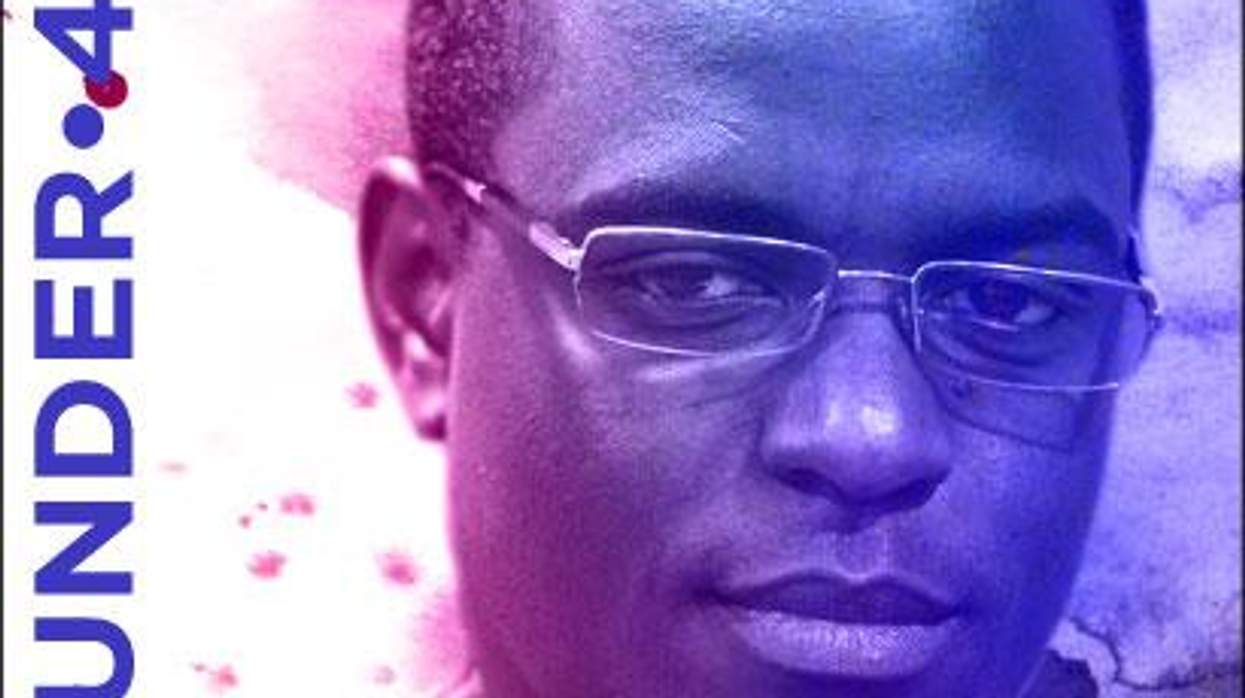No one would question LGBT Ugandans for leading quiet lives. In the months since Uganda enacted its "Jail The Gays" law, activists there report a 10-fold increase in dangers ranging from mob justice, assault, kidnapping, eviction and even murder.
And no one would balk if Frank Mugisha had faded from the spotlight after his friend David Kato was murdered in 2011. But for Mugisha, and those like him who dare to be publicly out in Uganda and on the world stage, courageously is the only way to truly live.
Kato and Mugisha faced threats of violence and murder way before passage and signing of The Anti-Homosexuality Act in February that made things so much worse. A Kampala newspaper infamously published a list in 2010 naming the country's 100 "top homos." Photos of Kato, Mugisha, and others were published by Rolling Stone (no affiliation to the U.S. magazine of the same name), which also included the home addresses and workplaces of some. They were accused of leading a conspiracy to "recruit" 100,000 Ugandan kids "into homosexuality." The cover featured a bright yellow banner that read "Hang Them."
Kato sued Rolling Stone for libel -- and won. Then four months later, he was bludgeoned to death inside his home near Kampala. Police declared Kato's death an unfortunate consequence of an attempted burglary, but his friends in the community knew better.
"My biggest mistake was underestimating how dangerous people can be if they don't agree with you -- for instance, if they are so homophobic," Mugisha says, looking back on it all. "I don't take chances. I have learned to try and be very careful."
As careful as Mugisha remains, he finds himself following in Kato's footsteps. Mugisha has a Ph.D. from Ghent University, has earned the Robert F. Kennedy Award for Human Rights, the Rafto Prize, and his name has reportedly been floated for the Nobel Peace Prize. Still, as Mugisha and Kato learned all too well, fame in Europe, North America, and the rest of the western world as a fighter for LGBT rights and equality comes at a high price back home in east Africa.
These days, Mugisha spends much of his time working outside of Uganda by raising awareness and gathering international support. He also lobbys western governments to pressure Ugandan President Yoweri Museveni to repeal the Anti-Homosexuality Act and to respect the rights and dignity of LGBT people.
As the executive director of Sexual Minorities Uganda, one of the few surviving LGBT advocacy groups in the country, Mugisha takes on the unenviable mission of advocating for LGBT Ugandans amid a climate that is even more hostile toward sexual and gender minorities than the already-dangerous environment that existed at the time of Kato's murder.
Mugisha, 32, must reverse a legacy of (mostly American) missionaries who have spent years seeding homophobia across the African continent. The notorious American evangelical Scott Lively is credited with having laid the groundwork for Uganda's cruel antigay law, which includes sentences as long as life in prison for "aggravated homosexuality." Still, Mugisha leads with dignity and bravery.
"I respond to most of the people who reach me for help and I also spend a lot of time talking to different key players who can help me make a change," Mugisha says. "I talk to anyone from the highest political leader, religious leader to an ordinary man on the street, as long as I have a chance to speak to them."
Going onto become one of the world's most effective young global LGBT advocates, Mugisha recalls his innocence in the beginning, and the fear of coming out of the closet in a society that was growing more homophobic, all while answering his inner call to be a leader among activists.
"My first experience with activism was a bit scary," Mugisha says, "as I did not know what the outcome would be." He was involved in a media campaign, which he knew "means more exposure."
Mugisha wasn't sure how the few people who knew he was gay would interpret his decision to come out publicly. Would he lose his family? His friends? His job? "I sure did not know how people I was not out to would take it." He knew the risk and did it anyway. That's how Mugisha lives his entire life.
This is one of eight profiles that The Advocate released this week for the annual "40 Under 40" list. From now through Friday, August 8, readers are asked to vote on who you think should be on The Advocate's digital edition cover. Then the remaining 32 honorees will be released in August along with the new cover. Go to Facebook to vote now!




































































Charlie Kirk DID say stoning gay people was the 'perfect law' — and these other heinous quotes